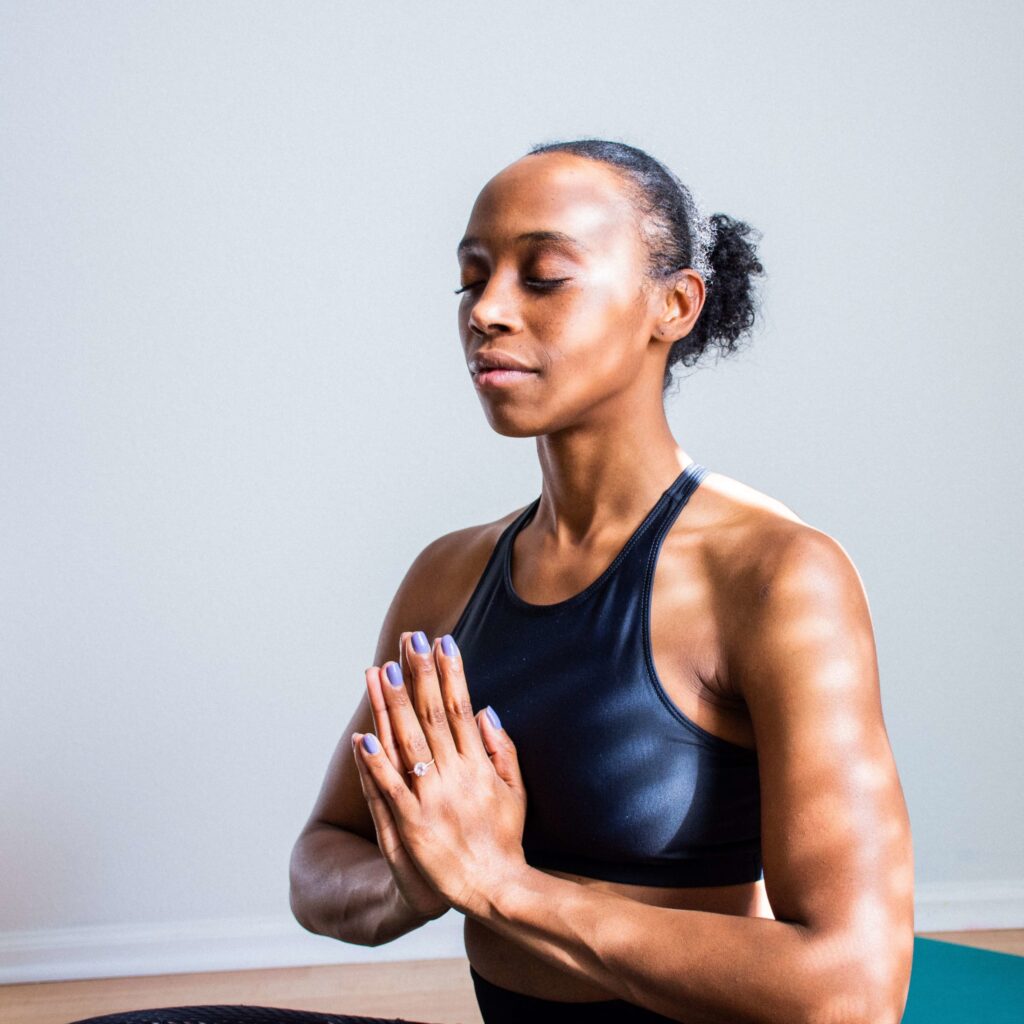Maintaining recovery can be a difficult process. In fact, the rate of relapse for substance use disorders is estimated to be about 40 to 60%. That is why learning healthy coping strategies to use throughout recovery is so important. Recovery is not only about learning to live without addiction. It’s also about learning to handle situations in a new way. And learning to manage sometimes difficult thoughts and feelings without the use of drugs or alcohol. The more “tools” you have in your toolkit, the better chance you have of responding to a situation or feeling in a healthy way.
There are many coping skills that can be helpful for individuals in recovery. Healthy coping skills can include things like:
- Getting regular exercise
- Practicing gratitude
- Journaling
- Practicing mindfulness activities like meditation
In particular, meditation can be helpful for recovery because it can decrease stress, which is a risk factor for relapse. Learning to reduce and manage stress in a helpful way could also have a positive impact on your recovery.

What Is Meditation?
You might have some misconceptions about meditation, so here are a few things it’s important to know:
No, you don’t have to be a Buddhist monk to practice meditation!
No, you don’t have to follow a particular religion.
No, you won’t have mind-control abilities if you decide to give meditation a try.
And, yes, you do have time to try it!
Now we can talk about what meditation is and how it can benefit your recovery.
Meditation is a mind-body practice that can increase relaxation, help with stress reduction, and positively affect mental health. The main purpose of meditation is to block out the outside world and your thoughts related to it. After this, you can focus on simply breathing or on a chosen theme, like recovery. There are many types of meditation, including:
- Daily guided meditation
- Mindfulness meditation
- Transcendental meditation
And these are just a few!
Although there are several different types, many of them have similar components. The main steps include:
- Finding a quiet, distraction-free space
- Getting into a comfortable position
- Focusing your attention
- Keeping an open attitude
It’s important to note that there isn’t a perfect way to practice meditation. What works best for someone else might not work for you, and that’s okay. It’s called a meditation practice for a reason: It takes time to find what will be most helpful for you and reap the benefits, so don’t give up!
How to Practice Meditation
As mentioned above, many meditation practices have four main parts:
- Find a quiet, comfortable space where you won’t be distracted, so turn off the television, music, podcast, etc., and quiet your phone.
- Get into a comfortable position. This could mean laying down, sitting comfortably in a chair, or even walking outside.
- Focus your attention on something specific. This could be on a particular phrase or image or on the simple act of breathing.
- Keep an open attitude, and remain non-judgmental to yourself throughout this process. When you start to think about what you’re going to have for dinner or something your co-worker said to you earlier or how well you’re doing at meditating, don’t get frustrated! This is a normal part of the process. The best way to handle these thoughts is to acknowledge that you’re having them, let them go, and refocus on the meditation practice.
Benefits of Meditation in Recovery
Some research argues that mindfulness practices, like meditation, could be useful for relapse prevention. In recovery, individuals focus on recognizing triggers and using healthy coping skills to combat these triggers. For some, feeling stressed, sad, or angry can be a trigger to use substances. Practicing mindfulness may help you better identify your emotions and focus more on positive ones. These practices may allow you to better handle triggers when they do come up throughout your recovery.
Studies have also shown that meditation can have a positive impact on physical and psychological health. It can help reduce symptoms of depression and anxiety and increase empathy. These things are important because, while in recovery, it is essential to focus on self-care. This is the practice of caring for your own physical and mental health. Self-care for physical health is making sure to get enough sleep, eating healthy foods, and maintaining personal hygiene. Emotional self-care is being kind to yourself and making time for yourself. Since meditation can be effective in both areas, it may be a beneficial skill to use in your recovery.
Meditation as a Tool in Recovery
Reducing stress, feeling more relaxed, and reducing negative thoughts can all have a positive impact on recovery. That is why meditation for addiction recovery can be a helpful practice. It is important to keep in mind, though, that meditation alone won’t make it so you never use substance again. Any effective recovery is made up of lots of different tools that work together. Other helpful tools can include 12-step programs and/or individual mental health counseling as part of an addiction treatment program. Meditation can be one helpful skill used during the recovery process but shouldn’t be the only tool.
Also, each person’s meditation recovery practices won’t look the same. It may take some experimentation or trial and error, but many of those who have stuck with meditation have reported a positive impact on their well-being.
Tips and Resources for Incorporating Meditation Into Your Life
One of the biggest tips for incorporating any new activity into your routine is to start small. Deciding to give meditation a try can be as simple as setting aside 5 to 10 minutes a day to practice. The idea of daily meditation for your recovery can sound daunting, but starting small will help. If you find that it works for you, you can start to add more time to your practice as you go along.
Another tip is to give yourself a break and be kind to yourself along the way. It can be tempting to want to throw in the towel at the start if you don’t get it “right” right away. But remember, there is no one right way to practice meditation. In most cases, you probably will struggle at first. That’s why it takes practice!
There are many resources available today that can help you begin practicing meditation, including several helpful apps you can download that play guided meditations and provide support for beginners. You can also find countless videos online for guided meditations, even ones directly related to meditation and addiction. It can be helpful to choose the topic or theme you’d like to focus on during your practice. Then you can make it your own and find what best works for you.
If you are navigating recovery and looking for healthy coping strategies, meditation could help. If you want to decrease your stress level, increase focus on positive aspects of your life, and be more present, it might be worth a try.
- https://www.ncbi.nlm.nih.gov/pmc/articles/PMC6247953/
- https://www.nccih.nih.gov/health/meditation-in-depth
- https://www.ncbi.nlm.nih.gov/pmc/articles/PMC4553654/#R29
- https://www.ncbi.nlm.nih.gov/pmc/articles/PMC2732004/
- https://www.researchgate.net/profile/Ana_Ladeia/publication/295909574_Meditation_Health_and_Scientific_Investigations_Review_of_the_Literature/links/59f7535d0f7e9b553ebeddac/Meditation-Health-and-Scientific-Investigations-Review-of-the-Literature.pdf
- https://www.drugabuse.gov/publications/drugs-brains-behavior-science-addiction/treatment-recovery
Questions about treatment options?
Our admissions team is available 24/7 to listen to your story and help you get started with the next steps.












